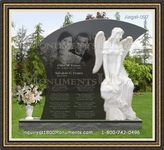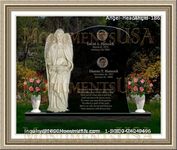|
Basic Details To Know When Writing An Epitaph
There are a great number of details that must be attended to when setting up funeral arrangements. Unless someone plans ahead, these responsibilities are usually left to a trusted individual, or to multiple members of the deceased's family. Composing a fitting epitaph is just one of the many tasks that will need to be handled.
This is a brief statement or phrase, sometimes a poem or prose, that is inscribed on an individual's headstone or commemorative plaque. It says something about the person it represents. There are several different forms this tribute can take, mostly dependent on the deceased's personality, life choices and who is writing it.
Practically every commemorative plaque or stone will bear information identifying the person. In the very least, this includes their name and typically a date for their birth and their death. While some opt to leave it at that, others choose to also add something extra like a sentiment, statement or further details about their life.
These additional statements are quite often short sentiments about how much the individual will be missed, how special they were or wishes for a peaceful afterlife. They might list their familial positions such as child, sibling, parent or spouse, or it may be a record of their time in the military or other organization. Spiritual scripture is also very commonly used.
A growing number of people are making the choice to write their own goodbyes. By doing so they are able to express themselves more accurately and use a bit of creativity if desired. People with an elevated sense of humor find this to be the perfect opportunity to leave people smiling one last time.
Others may take this opportunity to provide a last bit of sage advice to all who visit their stone. This may be a suggestion to live life fully or any other lesson they might have learned while alive. There are no real rules when it comes to what one can have inscribed on their grave marker.
|
|



























